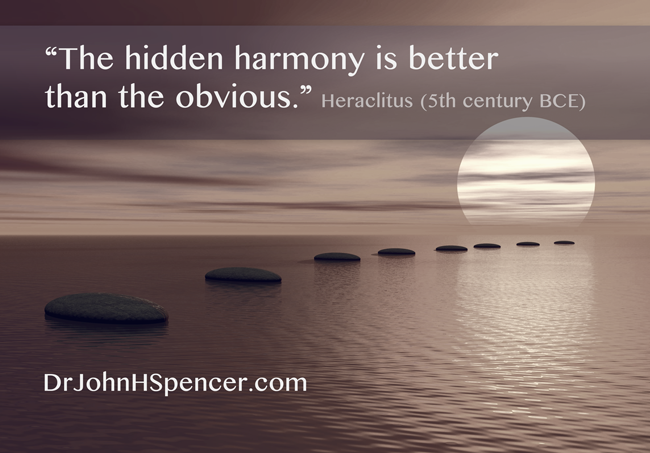“The hidden harmony is better than the obvious.” – Heraclitus (5th century BCE)*
The big stuff gets our attention, but extraordinary power lies waiting in the small, in the hidden depths.
We have a morbid fascination with big disasters, or are overly excited by the loud and obvious. Such childish fixation on the big and loud, however, makes it too easy for us to neglect the toxicity that seeps in through the subtle channels, which remain unguarded because our attention is absorbed by what appears to be obvious. We fear a big disaster but remain blissfully clueless about how we poison our own bodies on a daily basis with toxic substances (often masquerading as food).
We need to learn how to appreciate the art of subtlety, and turn much more of our attention to discovering underlying harmony. The seeking of harmony is not a denial of differences; on the contrary, clarification of subtle distinctions opens the way for discovering hidden harmonies between different things. It is easier, however, to see what is different. To see the hidden harmony is far more difficult.
Such harmony, to one degree or another, can potentially be found in any relationship, whether between people or between variables in a mathematical equation. We may be proud of (or saddened by) our ability to produce nuclear power, but all that power lies in understanding the behaviour of extraordinarily tiny particles expressed through mathematical relations. Why is it that it seems far easier for us to discover the hidden harmony of nature’s laws than it is to find harmony with our neighbours?
If we cannot find hidden harmony, then how can we hope to make a better world? How shall we awaken to the silent alarm?
*The Presocratics (Wheelwright, 1985)
